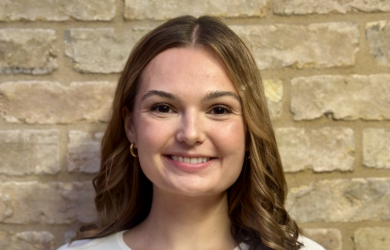Talking about development is very different from actually doing it, says Matthew Tasker, so the Australian social anthropology student decided to find out for himself by heading for Ecuador. Eighteen months later and he and his partner had created an award-winning education programme for indigenous communities which Microsoft has now shown an interest in.
Matthew, who completed an honours degree in Social Anthropology at the University of Sydney in 2006, went to Ecuador in 2008 with his partner, Linda Westberg, who wanted to do fieldwork there and had a strong background in development. Matthew says: “We wanted to see if we really had the ability to create a real and positive impact.”
Once there, they launched two social entrepreneurial projects, working with with Andean Kichwa and Amazonian Sapara indigenous community members which resulted in the creation of innovative multimedia educational material aimed at revitalising and strengthening their respective languages and identities. They started from scratch, setting up a team and getting to work with no external funding or support. After months of physically and mentally draining work, they presented the project to over a hundred local community members and officials for feedback. “To our relief,” says Matthew, “there was a strong emotional response from many members, who rallied behind our project as something that really could breathe life back into their dying cultural heritage.”
The project they initiated in partnership with indigenous Kichwa-speaking communities in the Andean region of Cayambe led to the creation of 70 multimedia classes and four textbooks. The type of material and the approach was very different from what was available at the time.
Eventually the work was recognised by the Government and other bodies and the team received funding from the Ecuadorian Ministry of Bilingual Education. The UNESCO office in Quito officially recognised their achievements by allowing them to use their logo as an endorsement on all their project material and publications. The multimedia classes are now being used in a number of schools, and Microsoft Ecuador is in talks with the team to have the textbooks published and to explore other possibilities.
The project has also won awards. Recently it won a national competition organised by Alianza por la Educación de Microsoft and Escuelas Inter@ctivas de Fundación ChasquiNet for the most innovative educational material using technology in Ecuador and is now in the running for the most innovative educational project using technology for the entire Latin American continent.
Matthew says: “The whole experience was the both the most amazing and painful experience of my life. I was forced to confront my limitations and use my strengths to overcome what at times seemed impossible situations. Overall I gained a much greater understanding of development on the ground and ignited a passion to continue working within the field of international development.”
Matthew says he has always had a strong interest in different cultures, which was reinforced when he moved to Singapore with his parents when he was around nine. From a young age, he was able to explore countries like Malaysia, Indonesia and Thailand which sparked a keen interest in understanding and learning from other cultural perspectives.
Tourism
After such a successful experience in Ecuador, Matthew and Linda reflected on the many groups they had met through their work and travels. They realised that a common theme was the fact that many of the groups had been setting up their own community-based tourism initiatives as a way of maintaining their traditional lifestyles and minimising damage to the environment.
“It was a way in which they could attempt to raise alternative sources of income to complement funds raised through other activities (like selling organic produce etc), without having to accept oil drilling and logging activities on their land,” says Matthew.
“We had personally experienced the damage this had caused in various regions of the Amazon, and although we have always been wary of the negative impact tourism can have on local communities, we were fortunate enough to experience many community-based tourism initiatives that really benefited the community as a whole.”
However, the communities often lacked the resources and access to communication systems which would help them attract tourists.
In February 2010, Matthew and Linda decided to set up Grassroots Journeys to provide communities and the NGOs and ethical travel agencies that support them with the opportunity to promote themselves on a centralised website accessible by all.
Matthew says many community-tourism operations are supported by local NGOs and function in a holistic manner. For example, the Bolivian-based NGO, Fundación Delpia works with the Yuracaré people to run various sustainable income-generating projects like honey production, craftwork and organic farming alongside a tourism/volunteering programme. This was initiated after theYuracaré sited poverty as a serious problem and dissatisfaction with their current production of cocoa and forest management which was proving unsustainable.
He says community-tourism operations put money back into communities as a whole and allow them to build new schools, medical centres, water systems, buy medical supplies and much more.
“It also reinforces the importance of their cultural and historical roots as visitors come to learn about their way of life,” he adds. “For tourists and volunteers there is an opportunity to directly finance and support development projects and experience a very different way of life and way of seeing the world around them.”
Matthew hopes that studying for an MPhil in Environment, Society and Development at Cambridge will give him a greater understanding of the factors that influence how markets operate and how economic growth, innovative technologies and better infrastructure can reach poor rural populations.
He adds that being a Gates scholar will give him access to a group of highly talented and motivated people and hopes eventually to work ininternational development.












